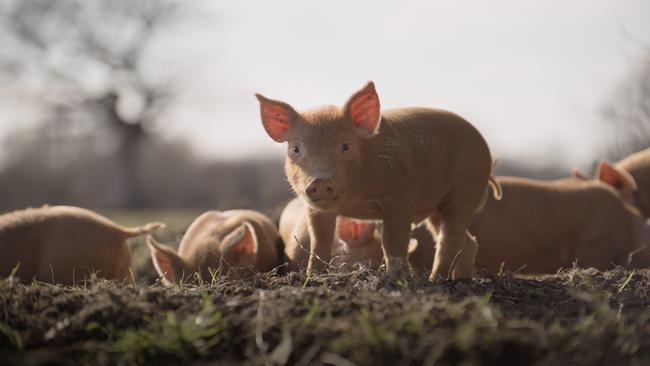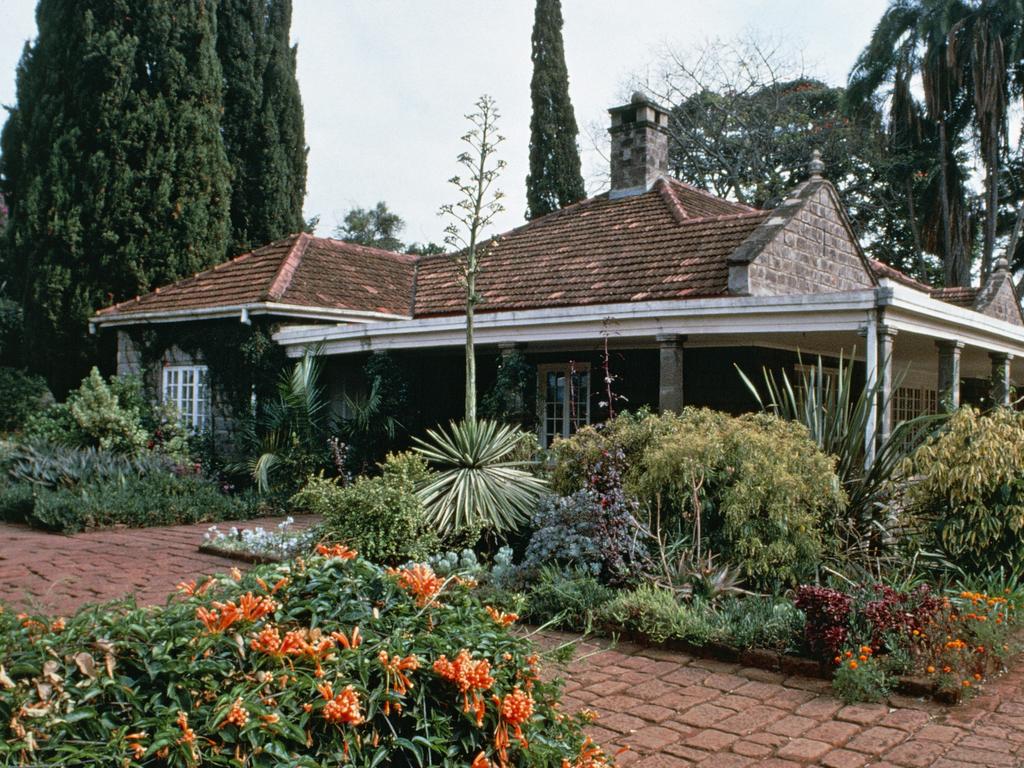Wilding is a zany take on letting nature take its course
What happens when you turn 1400ha of farmland in West Sussex into a biodiverse landscape full of wild animals?

One of my favourites moments in Sydney Pollack’s 1985 film adaptation of Isak Dinesen’s Out of Africa comes when Meryl Streep tries to divert a flow of water that threatens her coffee crop. She stands, defeated, wipes her hair from her eyes and tells her native workers, “Oh, let it go. Let it go. This water lives in Mombasa anyway.”
This scene came to mind as I watched the British documentary Wilding, directed by David Allen, about an experiment to turn 1400ha of farmland in West Sussex into a biodiverse landscape full of wild animals. What happens is a good example of the pros and cons of letting nature take its course.
The setting is the Knepp Estate, home to the aristocratic Burrell family since 1812. The residence is a castle that would not be out of place in Evelyn Waugh’s Brideshead Revisited. For more than 200 years, the family “ploughed and sprayed” the land to raise crops and livestock.
Charlie Burrell, a baron, inherited the estate when he and his wife, the well-named writer and conservationist Isabella Tree, were in their 20s. They tried to continue the family tradition but in 2000 opted to stop farming and rewild the land.
“We decided to tear down the fences and let the animals run free,’’ says Tree, who narrates the documentary, which she adapted from her bestselling 2018 memoir of the same name. “We put all our trust in nature.’’
The Burrells wanted to go as wild as possible so they introduced animals that were close to ancient breeds including English longhorn cattle, Exmoor ponies and Tamworth pigs. As the years rolled on, they would become even bolder.
The cinematography (Simon De Glanville and Tim Cragg) is full of beautiful moments such as when a sow prepares a “leaf and moss duvet” for her first litter of piglets. Indeed it’s the pigs that lead the charge in the rewilding, as they do in the unwilding in George Orwell’s Animal Farm.
While Tree narrates and we see the couple throughout, in the flashback stories they are played by actors. So, too, are the animals. So the funniest scenes, such as when the pigs invade an estate luncheon and eat all the canapes, or a horse enters the offices and scares the secretary, are recreated not documentary.
The shift from “tame to wild” did not go down well with the Burrells’ farming neighbours. In recreated scenes they voice concerns such as “It don’t feed the nation” and “Wild boars on the M25?”, which reminded me of the wonderful 1970s BBC sitcom The Good Life, where a couple go self-sufficient in the London suburbs. I can see Penelope Keith as the Burrells’ imperious but loveable neighbour.
The neighbours’ complaints touch on the cons of rewilding. Letting everything go to seed means allowing the growth of farmers’ dire enemies such as creeping thistle and ragwort. When the former flourishes, the Burrells know they are in serious trouble.
This documentary contains moments of wonder, and of hope for endangered species, but only tells part of the story.
The Burrells have reintroduced absent species to their former homeland, including one new arrival that has been missing for 600 years. It’s all charming and wildly lovely to look at and in one sense can be seen as an advertisement for the estate, which has become a tourist attraction, offering lodging, meals, a gift shop and more.
That the estate needs to be a business, needs to be biodiverse and profitable (even a baron needs a quid or two), is not mentioned. Nor, beyond a brief reference, is the fact the animals are culled and end up in the kitchen and on the dining table.
None of this is a secret – you can peruse the dining menu at knepp.co.uk – but a more rounded documentary would tell us more about rewilding in general and note that this ongoing experiment in southeast England was undertaken from a position of huge privilege.
Wilding (PG)
78 minutes. In cinemas.
★★★






To join the conversation, please log in. Don't have an account? Register
Join the conversation, you are commenting as Logout